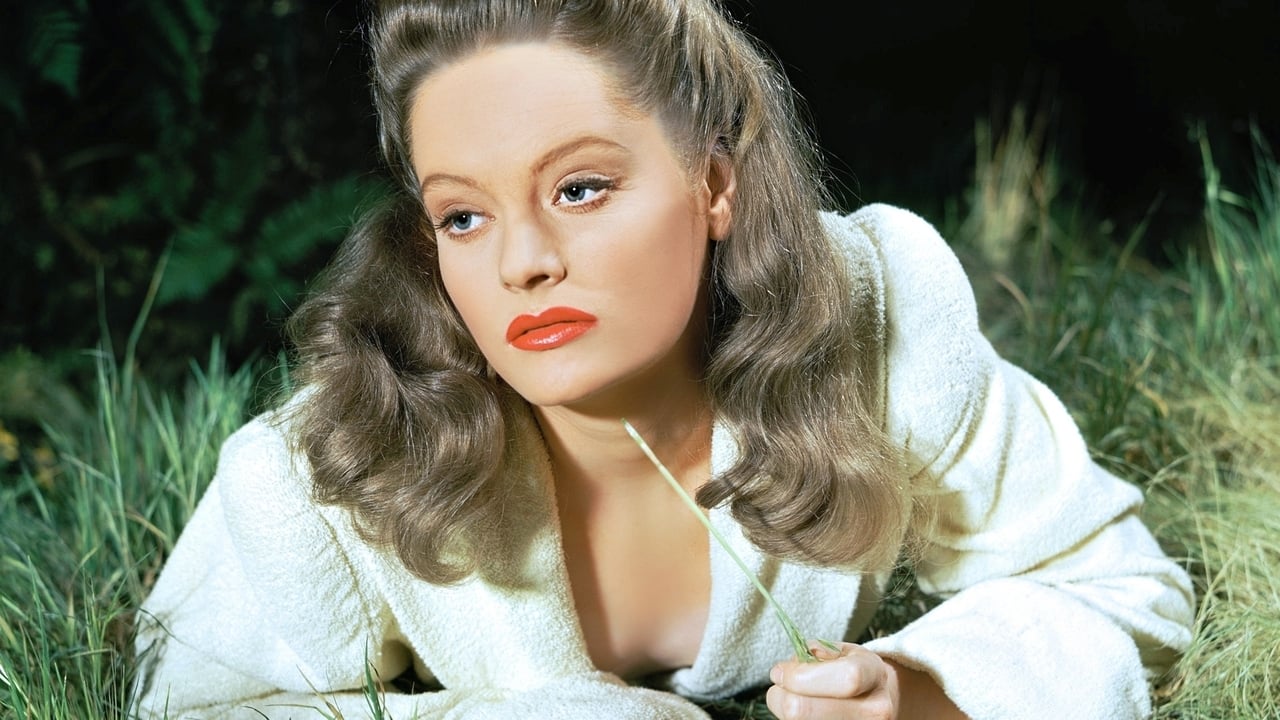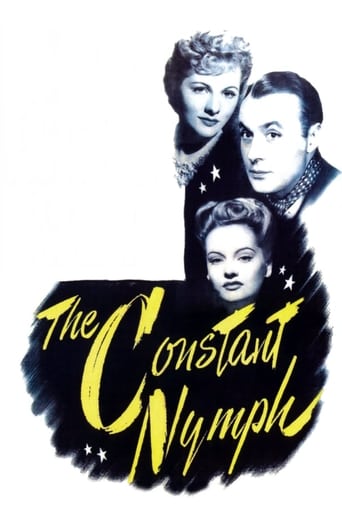

Thanks for the memories!
... View MoreOne of the best films i have seen
... View MoreExcellent characters with emotional depth. My wife, daughter and granddaughter all enjoyed it...and me, too! Very good movie! You won't be disappointed.
... View MoreThe tone of this movie is interesting -- the stakes are both dramatic and high, but it's balanced with a lot of fun, tongue and cheek dialogue.
... View MoreWhat I like most in this movie is the wonderful chemistry between Charles Boyer and Joan Fontaine .Though I didn't like the strange idea of the movie but I enjoyed Boyer's gay spirit in his scenes with Tessa and Paula.He always lit the screen with joy and cheerfulness and I liked his fatherly way of dealing with them.Joan Fontaine was so romantic, innocent, and delicate.Alixis Smith was also impressive in her performance but it was only near the end of the movie.
... View MoreThe idea of Joan Fontaine at age 25 playing a teenage girl certainly inspired my curiosity about this film. Her performance, which was one of her favorites, was Oscar nominated. Tessa Sanger is a role of complexity and Fontaine gives her a naive nobility in the body of a girl who is energetic and awkward. The daughter of a musical composer, she is infatuated with Lewis Dodd (Charles Boyer), a family friend who periodically comes to visit.Lewis is a frustrated composer with little regard for social conventions. His cynical nature is somewhat abated whenever he visits the Sangers, who live far outside the city. Lewis marries into a rich family and his wife, Florence (Alexis Smith), does her best to accommodate his artistic temperament, but she begins to see Tessa as a divisive factor in their relationship.The music in the film supports the film's story about love. Tessa's love is selfless and pure, the stuff of pure romanticism. Such sentiments are not available to Lewis, and his compositions reflect his inability to access emotional depth. Musical director Erich Wolfgang Korngold supplies a score that consciously illustrates the contrast between the dissonance of modernism with the melodic lushness of romanticism. This culminates in the dramatic and satisfying final scenes.Fine acting, solid direction by Edmund Goulding, wonderful music, beautiful fashions (if only they were in color!) all make for a unique film about love that may be timeless despite the tragic consequences of time. At its core is the performance by Fontaine, who is a joy to behold.
... View MoreThere are some major keys to the essence of this tragedy of music and love. One of them is the old composer Albert Sanger, played by Montagu Love, who is the knowledgeable one about music and who clearly sees the foibles of Lewis Dodd (Charles Boyer), the famous wannabe composer, all modernist, but with some hope in him. The old man sees this hope and encourages it, and he dies with something of a testament to Charles Boyer of an idea to "true" music.Another who sees the heart of the matter in music is his daughter Tessa, played by Joan Fontaine, who got an Oscar nomination for her heartrending performance. While she sees through everything she suffers from a sensitive heart and easily gets "palpitations". Her sensitivity is grossly overlooked, underestimated and ignored by her surrounding people, especially by her cousin (Alexis Smith) who marries Charles Boyer who really loves him but never understands him, – even less understanding her "so much younger" cousin, who loves Charles Boyer so much deeper and more understandingly.The tragedy is unsuspected at first, it comes stealing in gradually to in the end affect everyone with overwhelming heartbreakingness, while no one really is guilty. No one could foresee it, not even Alexis Smith, who makes a performance second only to Joan Fontaine.Music and love triumphs in the end but at a terrible cost, while at the same time the truth of love and music stand victorious transcending the pettiness of human relationships, ambitions, careers and all that. Charles Boyer is always perfect in his own way, so natural and dynamic in whatever part he plays, Joan Fontaine and Alexis Smith are both at their best, Charles Coburn reliable as always, and even Peter Lorre has a somewhat pathetically important part in the tragedy, which is of women, love and music. This is an extremely female matter, but Edmund Goulding handles it with great understanding and care, his films are always deeply and thoroughly human, he also made "Dark Victory" with Bette Davis, "The Razor's Edge" and "Nightmare Alley" with Tyrone Power for some examples, and here he reached perhaps his closest touch to the essence of the human heart.
... View MoreHaving heard for years that THE CONSTANT NYMPH was one of Joan Fontaine's favorite performances and knowing that Erich Wolfgang Korngold wrote the score for it, I looked forward to the film with much anticipation when I finally had a chance to see it.Unfortunately, aside from good performances from Charles Boyer and Alexis Smith, I found Miss Fontaine's Tessa just too cloying and simpering to be realistic. I thought she played the awkwardness of youth much better in LETTER FROM AN UNKNOWN WOMAN, a really much more solid and forceful role. Tessa just seems to be a girl inordinately fond of a musician who doesn't realize, until too late, what the girl means to him.Oddly enough, the scenes between Boyer and Alexis Smith are more developed than any of the quieter scenes between Boyer and Fontaine. Smith makes the wife a sympathetic creature because her jealousy is easy to comprehend.An altogether disappointing film aside from a glorious score by Korngold that leads to the final concerto where he fully develops the love theme for Boyer and Fontaine.Unfortunately, most of the sets for the country scenes early in the story look like painted backdrops so that one never gets the feeling that Tessa's environment is a real one. Nor does the story give Joan Fontaine ample opportunity to fully flesh out her character since she is missing from much of the middle portion of the film.For a great Fontaine performance, I suggest viewing LETTER FROM AN UNKNOWN WOMAN with Joan at her best.
... View More